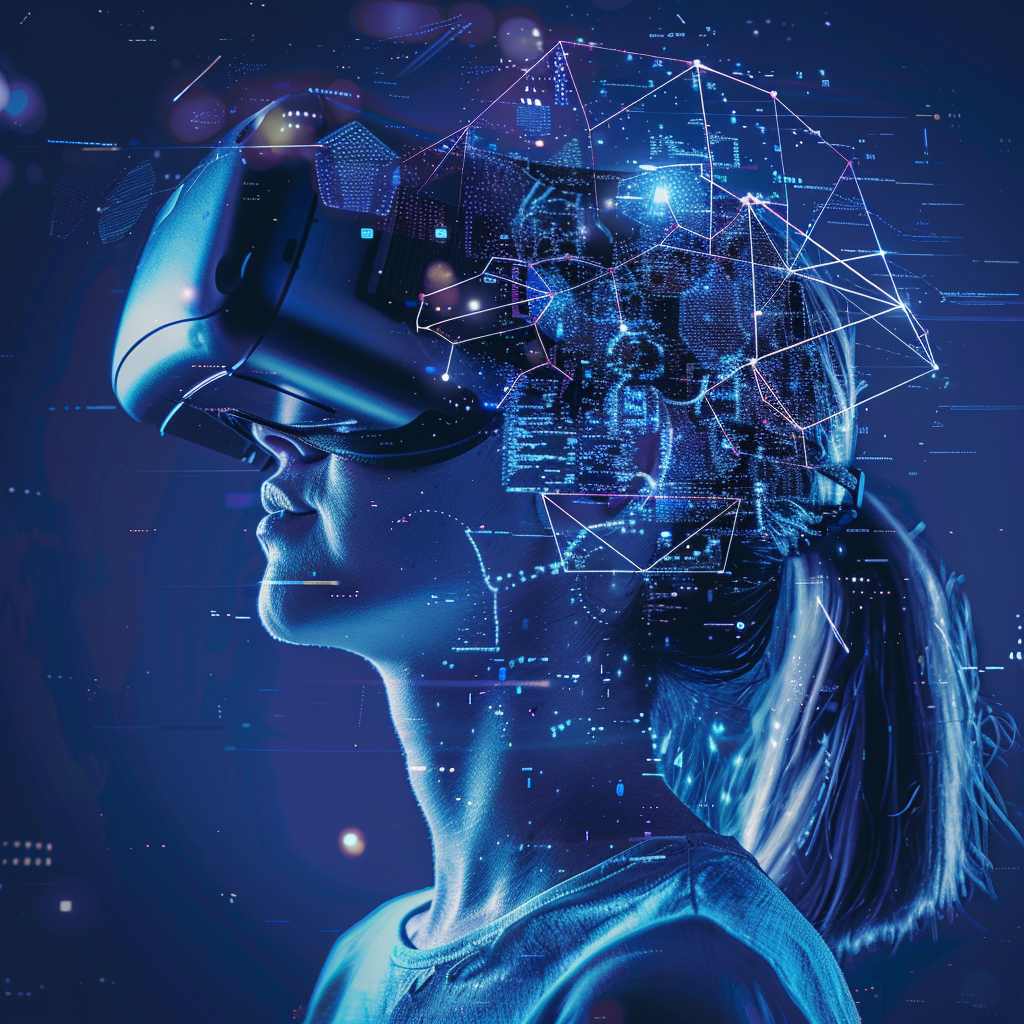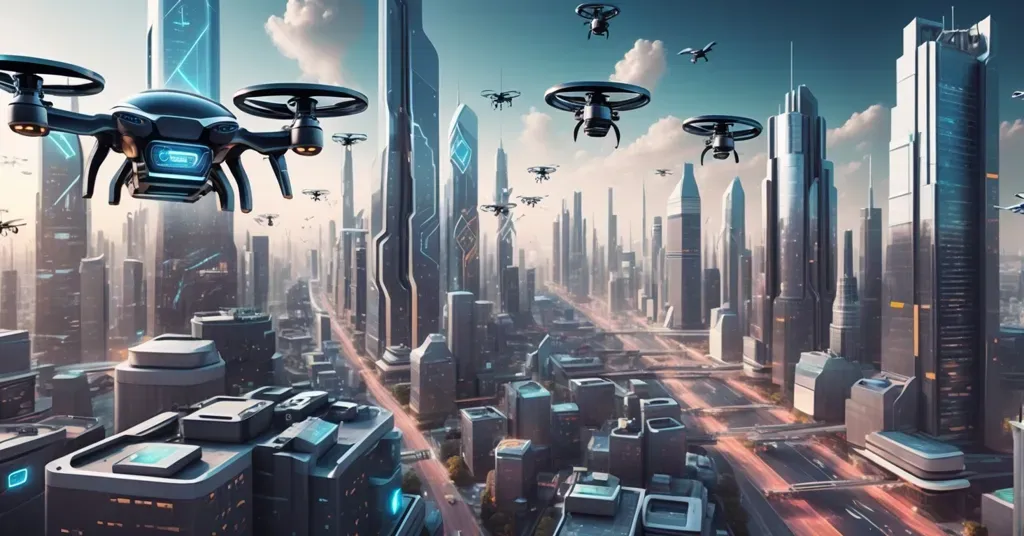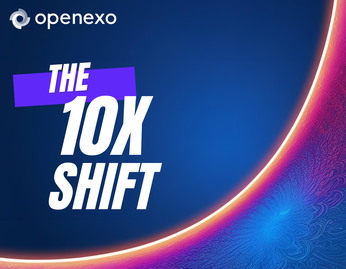
Gaining Health to Your Years: Science Tells You How to Live Longer And Healthier
The entire healthcare system is undergoing a transformative process where interdisciplinary teams merge to meet clinical needs with a patient-centric and outcome-based approach.
“I think I am aging, but I'm enjoying the process.” (Sharon Stone)
In the previous article of this health longevity series, the process of aging was discussed, particularly how it differs from longevity. Moreover, outstanding methods to “diagnose” aging while reversing the process followed the discussion. Indeed, the epigenetic clock to predict biological age and the development of age-related diseases was presented while paving the way toward innovative treatments. Lastly, a novel methodological framework to accurately measure health longevity was also reported, contrasting previous methods.
In this article, we will approach the topic of health longevity by exploring an innovative field of medicine called “longevity medicine” to promote health with disruptive technologies. In conclusion, developing healthy habits and a longevity mindset will be discussed as relevant factors promoting health with a proactive and optimistic attitude toward aging and life.
Longevity medicine: the new focus of tomorrow
A novel branch in medicine is now quickly evolving toward investigating health longevity based on advanced methods to detect age-related biomarkers. This field is called longevity medicine and involves a few sectors from geroscience, precision, preventive, functional medicine, and biogerontology. Indeed, the focus of longevity medicine is the possibility to detect early signs of age-related (communicable or non-communicable) disease development through artificial intelligence (AI) and machine learning (ML) methods, while preventing its progression [1,2]. Thus, the education of physicians should be revised to gain expertise in this emerging field of science, especially when facing the challenges brought by this century in healthcare. Indeed, the entire healthcare system is undergoing a transformative process where interdisciplinary teams merge to meet clinical needs with a patient-centric and outcome-based approach [3]. The availability of advanced AI-, ML-based systems, deep learning, and digital technologies represents outbreaking procedures toward the understanding of aging and longevity mechanisms, and in which chronological age can be distinguished from biological age. Therefore, their application in preventive, predictive, and precision medicine would support physicians and clinical professionals in their practice, while evolving the entire system from reactive to preventative and proactive. The ultimate goal of healthcare is to promote health longevity and age reversal [2].
In response to the ongoing increase of the aging population, which in turn will translate into a global social and economic concern, healthcare providers should be prepared in addressing patients’ needs with innovative and individualized treatments but also in fostering the shift in the lifespan from sickness to health [2]. Hence, longevity medicine bringing advanced methods, mostly based on AI, in diagnostics and treatments, require clinical professionals to be well prepared in their implementation. Whether longevity medicine is about remote monitoring of a patient health data, the identification of recurrent age-related patterns, aging clocks capable of estimating an individual’s biological age, or disease-related biomarkers detection, it is the future of health that asks for the acquisition of a novel set of skills and knowledge [4].
How to boost health longevity?
Besides medicine and outstanding scientific treatments to reverse age, how can you boost habits for longevity on daily basis?
Be happy to live longer
A study by Diener and Chan (2021) [6] reported that the perception of well-being, measured as life satisfaction, optimism, more positive over negative emotions, is related to a healthier and longer life expectancy. Indeed, several longitudinal studies have demonstrated that individuals who feel happy and satisfied live longer and healthier even when controlling variables such as health and socioeconomic status at baseline. Thus, experiments on animals and humans, in which the physiological change in perceiving well-being was examined, raised interest. Nevertheless, it is still doubtful whether subjective well-being can positively influence health longevity even in patients affected by diseases (e.g., cancer). Although positive emotions showed potential in improving health and longevity, more studies are needed to enhance these findings, with more robust statistical evidence and experimental designs.
Why dietary restrictions?
Different from malnutrition, dietary restriction (DR) was initially discovered in 1917 by Osborn, although the benefits of DR have been explored later in the 1980s when the first single-gene mutation was found to extend the lifespan of nematode worms [7]. Therefore, more studies have been conducted to investigate how mutations may influence health and longevity, and how these findings would benefit the prevention of age-related diseases in humans while suggesting novel clinical interventions. However, although the majority of experiments were conducted based on invertebrates, rodents, and non-human primates, additional research is needed to prove and confirm the effect of DR in humans to protect from developing cancer, obesity, cardiometabolic and neurodegenerative conditions, and other diseases. In addition, it should also be considered that the effect of DR on longevity is also influenced by genetic and epigenetic factors. Indeed, even in genetically identical rodents, the same type of DR had a diverse effect on the lifespan [8].
In this regard, a review by Green, Lamming, and Fontana (2021) [9] discussed evidence about dietary restrictions on mammalian organisms and their effect on stimulating specific mechanisms at the physiological, metabolic, and molecular level underlying age-related disease prevention in humans. Moreover, different types of fasting, protein restriction, or reduction in essential amino acids to promote healthy longevity were also discussed.
Investigating non-mammalian organisms can reveal genetic, epigenetic processes and microbial factors underlying aging and related diseases, including nutrient sensing, genomics, and protein homeostasis [9]. In several organisms, DR was also found to increase stem cell renewal, physiological, and regeneration of injured tissues, and through the inhibition of mTORC1 signaling [10]. Moreover, multiple metabolic pathways are related to a decline in aging and how this process is modulated by DR. Thus, investigated geroprotective mechanisms were the down-regulation of GH and insulin/IGF1 signaling, the reduction of mTORC1 signaling, the activation of GCN2, and reduced protein synthesis, the effect of FGF21 signaling related to nutritional stress and fasting, the activation of sirtuins (a family of nicotinamide adenine dinucleotide (NAD+)–dependent deacetylases), and the reduction of oxidative stress [9].
Nevertheless, recent findings did show how the restriction of specific nutrients and timing of food intake are relevant in modulating age-related processes [11]. A few dietary manipulations were protein restriction, which positively extended lifespan and independently of calorie intake in rodents [12], methionine threonine, tryptophan, and branched-chain amino acids (BCAAs) restriction were also identified as capable of increasing a healthy lifespan. Moreover, meal frequency and timing might also impact longevity and health. Recently, imposed daily fasting was found to generate a metabolic effect ables to enhance lifespan in mice [13], but the geroprotective effects of DR were found on cognition and frailty [14]. Furthermore, a 24-hour fast every other day or twice/week had the effect of extending lifespan in mice and rats, and prolonged, periodic fasting that lasts more than 24 hours and repeated once or twice/month had similar effects. Lastly, time-restricted feeding would regenerate disrupted circadian clock rhythms in mice, while protecting them from developing obesity, insulin resistance, inflammations, and hyperinsulinemia [9,15].
Promoting healthy habits with specific eating choices would be crucial in stimulating geroprotective mechanisms preventive chronic and age-related diseases. However, more studies are needed to better investigate how nutrients (e.g., amino acids, sugar, fats, etc.), DR, regular exercise, and cognitive training may influence longevity and health. Even though genetic and epigenetic factors interact with DR and diverse effects might be expected in humans due to their heterogeneity, future developments should focus on identifying personalized approaches to dietary interventions to promote health longevity at the individual level [9].
Health longevity and the global grand challenge
Advances in longevity medicine and public health are going to positively affect health longevity and this event is evolving in parallel to a demographic change toward the aging population. Today 8.5% of people (617 million) are aged over 65 and by 2050 this estimation is predicted to double reaching 1.6 billion worldwide. Thus, in the next thirty years, individuals aged 80 or even older are expected to more than triple, by growing from 126 million to 447 million. This phenomenon would have a considerable effect on the global economy and care delivery services. However, why shouldn’t we think the reverse? Indeed, developments in regenerative and longevity medicine, characterized by disruptive trends, technologies, and treatments would bring more benefits than burdens, especially when the focus is on promoting a healthier and longer life. Thus, if we look at the other side of the coin, there will be just opportunities.
In this regard, the U.S National Academy of Medicine founded a global movement to improve health and well-being from a physical, mental, and social perspective called the “Healthy Longevity Global Challenge.” Accordingly, this movement aims to:
- Transform challenges into opportunities in response to a growing aging population;
- Investigating innovative methods to address aging while promoting healthy longevity;
- Support transformative and scalable innovations across the world;
- Create a solid ecosystem made of scientists, entrepreneurs, clinical professionals, policymakers, and innovators to foster the future of health.
Moreover, the challenge is structured into two main initiatives:
- The Global Roadmap for Healthy Longevity: aims to create an independent International Commission to provide recommendations across worldwide societies regarding strategies, social and behavioral attitudes, technological and scientific advances in the perspective of healthy longevity.
- The Healthy longevity Global Competition: launched in 2019, it is a multi-million-dollar international competition to boost advances in healthy longevity with rewards and prizes. This competition welcomes innovative ideas from science, medicine, public health, engineering, entrepreneurship, public policy, and much more to enhance the future of health and longevity.
Evolve a longevity mindset
Peter Diamandis talks about evolving a longevity mindset, made of simple behaviors that will shape your health. Hence, to transform your action today while positively impacting your tomorrow, Diamandis highlights six key areas to focus your energy on [5]:
- What you believe: it is important to think positively about your age. Instead of associating aging with a “disease”, think about how advances in medicine can help you foster your health and longevity.
- How you document yourself: what you choose to read makes the difference about how you approach aging. Thus, choose carefully how you inform yourself about longevity.
- The community that surrounds you: people around you can influence your thoughts and behaviors. Surround yourself with positivity and wise allies. You won’t associate your age with death or diseases anymore, but you will be focused on stimulating mental and physical activities to promote the coming healthy years.
- Sleep: it has several functional, physiological, and cognitive benefits to health, especially in aging and against age-related disease development. Thus, consider making the proper time for sleep.
- Nutrition/diet: among diets and nutritional advice, based on the latest scientific discoveries intermittent fasting seems to have a positive effect on longevity.
- Physical exercise: besides sleep and nutrition, exercise regularly is essential to sustain muscle mass, bone density, and metabolisms.
One of the most recent advances in the field of medicine and longevity is gene therapy. Rejuvenate Bio, co-founded by Dr. Church, implements gene therapy to rejuvenate animals to translate this method to reverse age in humans. Indeed, research is focused on specific genes capable of reversing the aging clock in old animals. This gene-editing method, tested in mice, did show improvement in several age-related diseases such as type 2 diabetes, heart, kidney, and neurodegenerative diseases. Furthermore, the company is already testing gene therapy in dogs with the hope to begin clinical trials even in humans and FDA approved [5].
Moreover, another company called Qihan Biotech implements gene-editing and transplantation immunology to create organs that would be transplanted into humans. Currently, genetically-engineered pig organs are created which are resistant to aging and infections, although more tests are needed before being applied in humans [5]. Thus, controlling gene expression would be the key to reversing the process of aging, as demonstrated by Dr. Sinclair, professor of genetics at the Harvard Medical School and Co-founder of the journal Aging. Three Yamanaka factors (genes) were used to reverse aging in his research. Indeed these genes were typically expressed in embryos, and so very powerful in driving this process of reprogramming cells. With this method, Dr. Sinclair and his collaborators have already revitalized the eyes of mice affected by glaucoma. However, the team is already planning to continue the research focusing on restoring the liver, muscle, brain, and ears [16].
Beyond the concept of mortality
Evolving a longevity mindset means reversing the old concept of aging, which is characterized by a progression toward “death” and “diseases” into an optimistic opportunity to cultivate health. Indeed, Industry 4.0 and digital transformation are a source of innovation developing what is called “exponential medicine.” Therefore, outbreaking methods such as genome sequencing, RNA transcriptomics, vaccines, CRISPR, gene therapies, quantum computing, and AI technologies (but even more!) have already supported the process of aging, extending health to years of life. Besides medical advances, the new attitude is not considering aging as a “disease” but a process that can be improved or even reversed with the right mindset and healthy habits [16].
Exponential medicine: the longevity industry 2.0
In the next article, one of the most complex industries in human history will be discussed. The growth of the longevity industry has several implications at the social, political, and economic levels. However, the development of this industry would allow the understanding of aging and increased life expectancy as a worldwide event that needs attention and resources. Thus, the shift from 1.0 to 2.0 characterizes the disruptive evolution of the longevity industry on a global scale, supported by AI-driven technologies, preventive medicine, innovative financial and InvestTech solutions, biotech startups, and longevity corporations. Therefore, besides innovative and regenerative treatments, investing in the longevity industry, is the key and the future of health.

References:
- Zhavoronkov A, Mamoshina P, Vanhaelen Q, Scheibye-Knudsen M, Moskalev A, Aliper A. Artificial intelligence for aging and longevity research: recent advances and perspectives. Ageing Res Rev. 2019; 49: 49-66
- Bischof, E., Scheibye-Knudsen, M., Show, R., & Moskalev, A. (2021). Longevity medicine: ups killing the physicians of tomorrow. The Lancet, 2, 4, E187-188. DOI:https://doi.org/10.1016/S2666-7568(21)00024-6
- Zimlichman, E., Nicklin, W., Aggarwal, R., & Bates, D. W. (2021). HealthCare 2030: The Coming Transformation. NEJM Catalyst | Innovations in Care Delivery. DOI: 10.1056/CAT.20.0569.
- Colangelo, M. (2021). AI-enabled doctors will specialize in longevity medicine. Longevity technology. Available at: https://www.longevity.technology/ai-enabled-doctors-will-specialise-in-longevity-medicine/ [Accessed on September 03, 2021]
- Diamandis, P. H. (2021). How to impact your longevity today. Available at: https://www.diamandis.com/blog/how-to-impact-your-longevity-today [Accessed on January 3, 2022]
- Diener, E. & Chan, M.Y. (2011). Happy People Live Longer: Subjective Well-Being Contributes to Health and Longevity. Health & Well-being, 3, 1. DOI: https://doi.org/10.1111/j.1758-0854.2010.01045.x
- Kenyon, C. J. The genetics of ageing. Nature464, 504–512 (2010).
- Weindruch, R. & Sohal, R. S. Seminars in medicine of the Beth Israel Deaconess Medical Center. Caloric intake and aging. N. Engl. J. Med.337, 986–994 (1997).
- Green, C.L., Lamming, D.W. & Fontana, L. Molecular mechanisms of dietary restriction promoting health and longevity. Nat Rev Mol Cell Biol 23, 56–73 (2022). https://doi.org/10.1038/s41580-021-00411-4
- Mana, M. D., Kuo, E. Y. & Yilmaz, Ö. H. Dietary regulation of adult stem cells. Curr. stem Cell Rep.3, 1–8 (2017).
- Green, C. L. & Lamming, D. W. Regulation of metabolic health by essential dietary amino acids. Mech. Ageing Dev. 177, 186–200 (2019).
- Soultoukis, G. A. & Partridge, L. Dietary protein, metabolism, and aging. Annu. Rev. Biochem. 85, 5–34 (2016).
- Mitchell, S. J. et al. Daily fasting improves health and survival in male mice independent of diet composition and calories. Cell Metab. 29, 221–228 e223 (2019).
- Pak, H. H. et al. Distinct roles of fasting and calories in the metabolic, molecular, and geroprotective effects of a calorie restricted diet. Nat. Metab. (2021) in press.
- Hatori, M. et al. Time-restricted feeding without reducing caloric intake prevents metabolic diseases in mice fed a high-fat diet. Cell Metab.15, 848–860 (2012).Diamandis, P. H. (2021). The science of age reversal. Available at: https://www.diamandis.com/blog/science-age-reversal [Accessed on January 3, 2022]
- Diamandis, P. H. (2021). The science of age reversal. Available at: https://www.diamandis.com/blog/science-age-reversal [Accessed on January 3, 2022]

ExO Insight Newsletter
Join the newsletter to receive the latest updates in your inbox.









